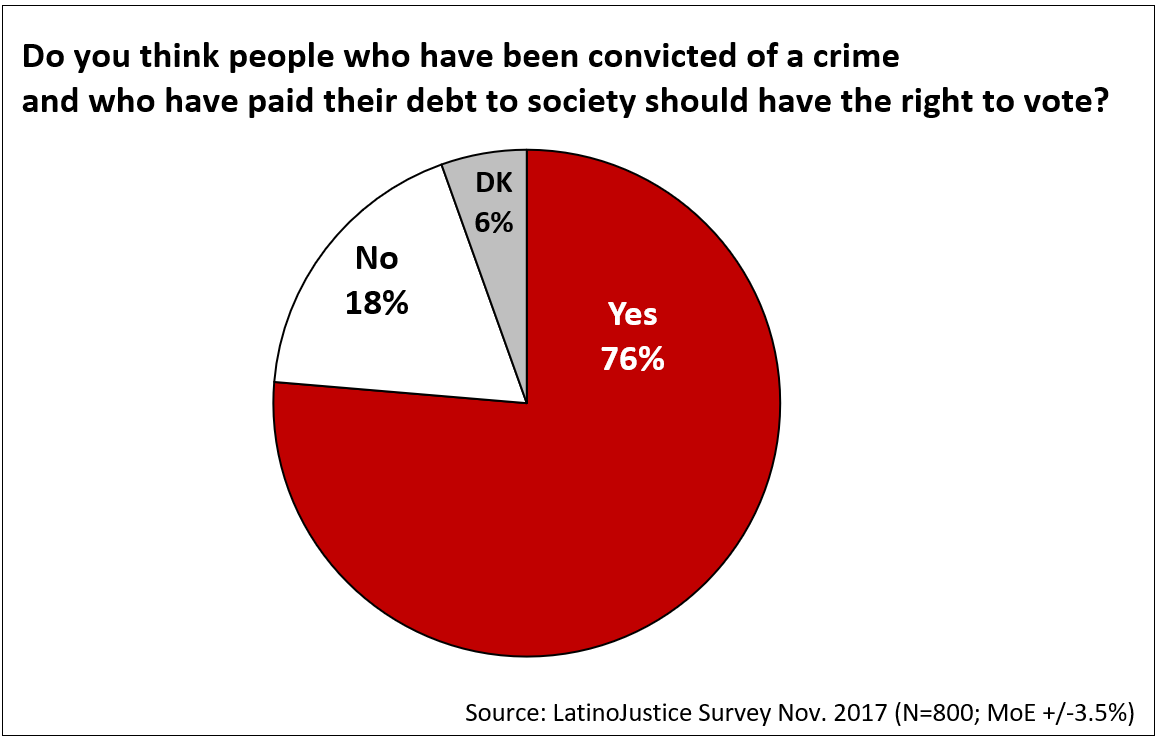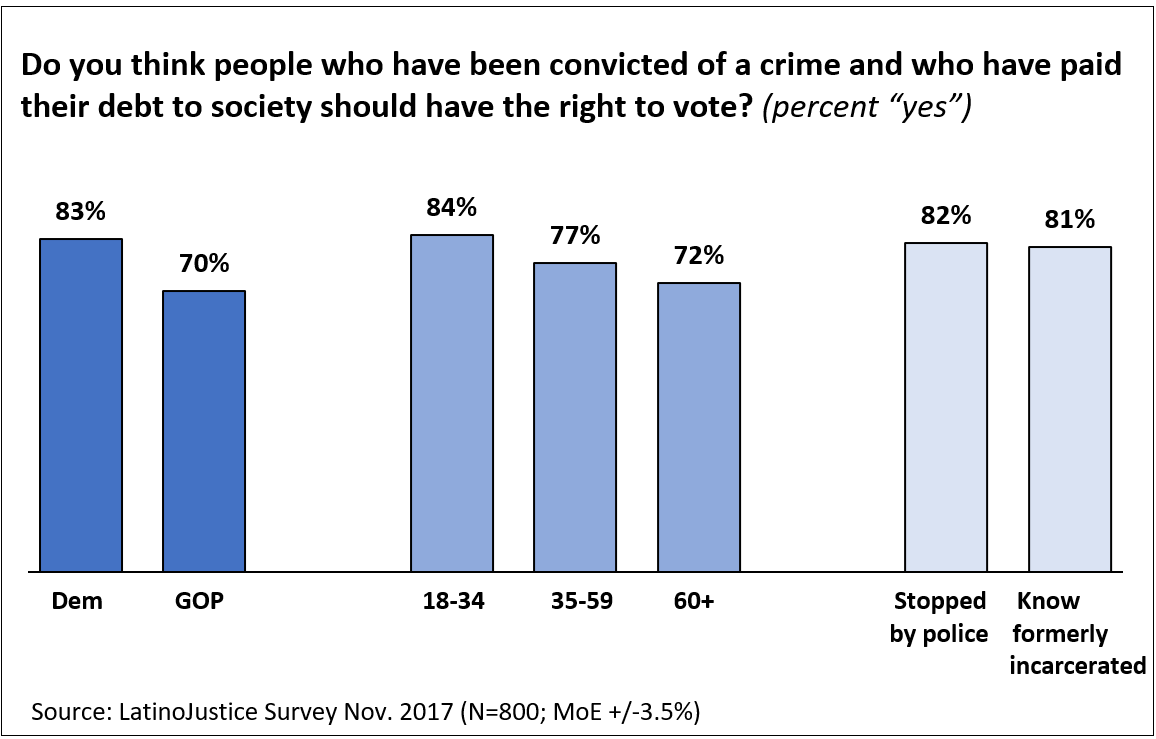It is estimated that there are over 6.1 million citizens (2.5 percent of the total U.S. voting age population) in the United States who are forbidden to vote because of felony disenfranchisement or laws restricting voting rights for those convicted of a felony. Given the complexity of states and voter rights, the landscape of disenfranchisement policies vary widely by state, ranging from no restrictions on voting (Maine and Vermont) to states that place a lifetime ban upon conviction. For example, Florida is currently one of the most punitive states on voter rights and it is estimated that over 1.5 million formerly incarcerated adults are banned from casting a vote in the sunshine state. Recent polling data conducted by Latino Decisions and sponsored by LatinoJustice PRLDEF finds that over 76 percent of Latinos nationally agree that people who have been convicted of a crime and who have paid their debt to society should have the right to vote.

When stratifying the sample on key demographics, we find overwhelming support across various key variables. Most surprising was overall support by both Democrats and Republicans. We find that partisanship matters on voter disenfranchisement and both strongly believe that if an individual has been convicted of a crime and has paid their debt to society they should have the right to vote. In fact, over 83 percent of democrats and 70 percent of Republicans agree in restoring voters rights for the formerly incarcerated. Furthermore, we also find support by age cohorts with stronger results among Latino millennials. We find that as Latinos get older , they decrease their support in restoring voter rights. This finding highlights additional findings in this poll, in which we find that younger Latinos have a stronger relationship with formerly incarcerated individuals and they also have a stronger linked fate with this community.

Additionally, we asked Latinos about their relationship and experiences with both police and individuals who have been involved with the criminal justice system. We find strong support when it comes to restoring voting rights to the formerly incarcerated based on relationships with both police and the criminal justice system. In fact, among the 29 percent of Latinos who have been stopped by the police over 82 percent agree that people who have been convicted of a crime and who have paid their debt to society should have the right to vote. Moreover, among Latinos that personally know someone formerly incarcerated, 81 percent agree these individuals should have their voting rights restored.
For nearly all Latinos, there is a strong belief that formerly incarcerated individuals who have paid their debt to society should have the right to vote. Further, Latinos who have more experience with both policing and the criminal justice system are strong supporters of restoring the voting rights for the formerly incarcerated. By any measure, polling data from Latino Decisions clearly finds Latinos nationally support policies to protect vulnerable populations.
Methodology
National sample N= 800 (MoE +/-3.5%). Completed interviews by landline, cell and on-line with Latino registered and non-registered voters in English and Spanish at respondent’s discretion; from November 6-20, 2017. Randomly drawn from representative statewide sample of Latino registered and non-registered voters, and then weighted to match census demographics. More details HERE.


